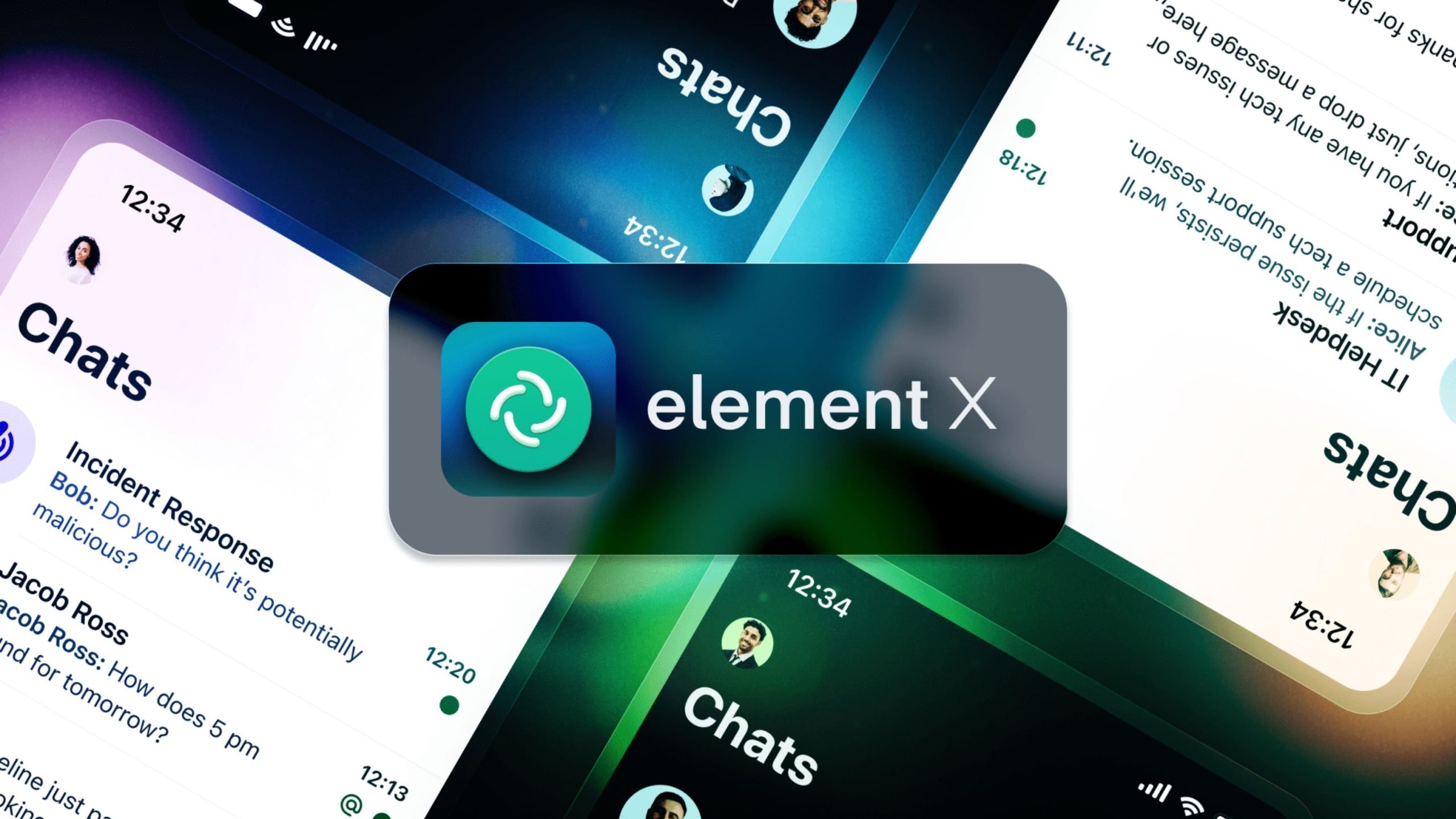At the recent Matrix Conference, developers behind Element launched the latest iteration of their effort – Element X, a private, decentralized, open-source, and end-to-end encrypted app.
Element X is a Matrix-based (and the first Matrix 2.0) cross-platform messenger based on the classic Element mobile apps, and according to a blog post, “almost all” its users can now use Element X for messaging.
This applies both to personal and corporate scenarios. The plan is to turn Element X – a full rewrite – into Element once again – as soon as the migration has been completed for all users.
COO and co-founder Amandine Le Pape presented a demo of the new features during the conference, including that known as Element (video) Calls.
The key developers went into the technical side of things as well, explaining that the software now uses Rust SDK and SwiftUI, as well as Jetpack Compose (these are APIs and UI frameworks for various platforms.)
Users are urged to now try, and provide feedback on the new product for Android and iOS.
Some notes touching on privacy and security issues are made, such as the app being available on Google Play Store’s free and open source alternative F-Droid as well – and that some metrics testing is done via Simplified Sliding Sync.
It’s an opt-in, available to those who wish to help the developers understand how their app is behaving, performance-wise.
Other than providing users with “beautiful usability, performance, and productivity,” some other noteworthy Element X features include instant sync, instant login, and instant launch, end-to-end-encrypted voice and video conferencing that is powered by Matrix – an open standard real-time communications protocol.
Currently not generally available, but the plan is to have that in place by the end of the year is what is known as next-generation authentication, which includes login via QR code.
Encryption is one of those features that are always desirable, but often difficult to set up or use by “the average user”; here, the team behind Element X promises “radically improved encryption UX (user experience)” which relies on matrix-rust-crypto and the Invisible Encryption Initiative.
The blog post also provides technical details on how to register an account and use Element X.










